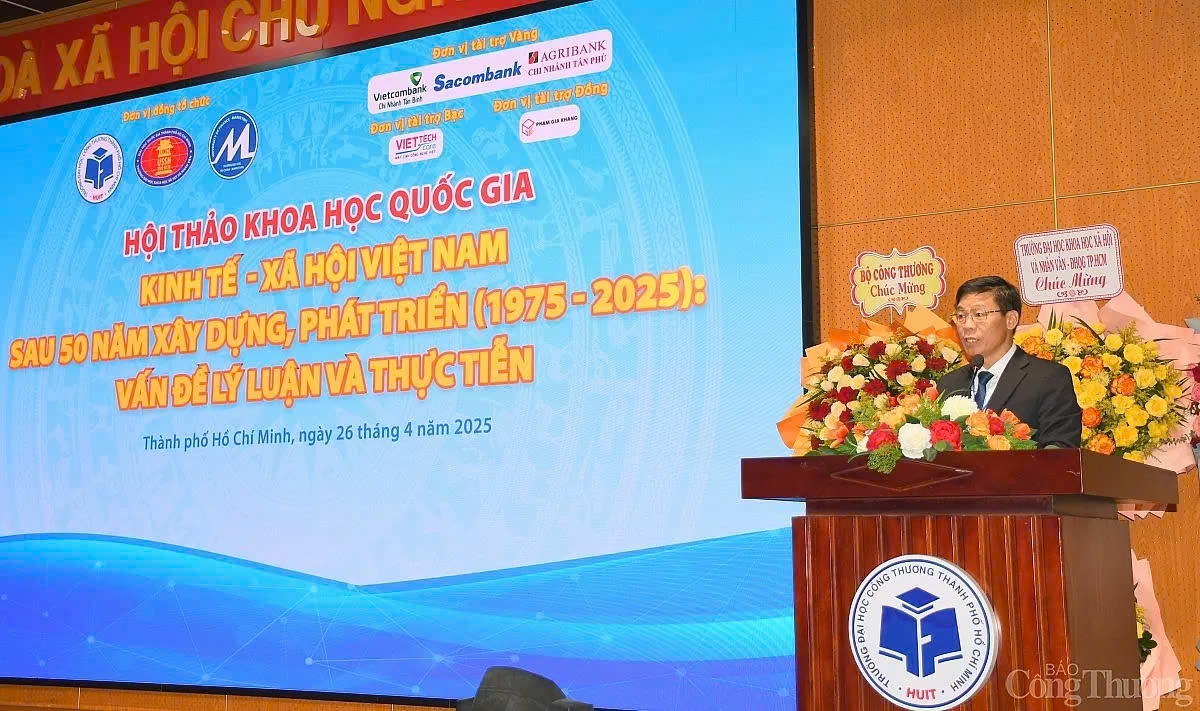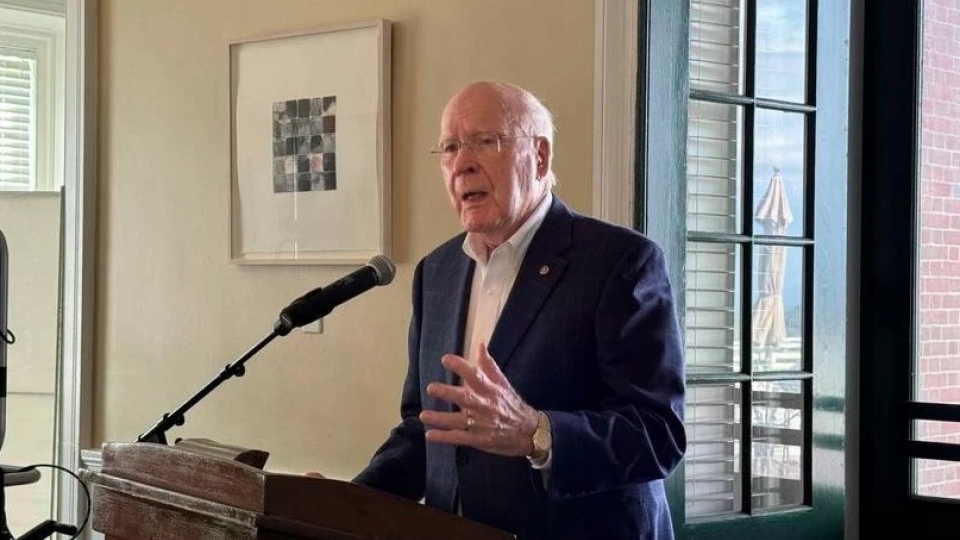National workshop sheds light on Vietnam’s 50-year socio-economic development
VOV.VN - Experts comprehensively analysed Vietnam’s development achievements over the past five decades, addressed current challenges, and proposed strategies to ensure future sustainable development at a national workshop in Ho Chi Minh City on April 26.

The workshop, jointly held by Ho Chi Minh City University of Industry and Trade, University of Social Sciences and Humanities, and University of Finance and Marketing, is part of activities marking 50 years of the liberation of the South and national reunification (April 30, 1975 – 2025).
In his presentation, PhD. Pham Tien Dat, president of University of Finance and Marketing, highlighted Vietnam’s remarkable transformations across all sectors, from the economy, society, science and technology, to foreign relations. Vietnam has maintained strong growth, making it one of the fastest-growing economies in the region. The country has also expanded its international partnerships, while living standards have greatly improved, the poverty rate has sharply decreased, and infrastructure development has been notably advanced.
However, Dat said, Vietnam still faces several challenges, such as unsustainable growth, income inequality, and the impact of climate change. He therefore proposed several key strategies for further development, including transitioning to a more sustainable growth model that leverages science, technology, and innovation. He emphasised the importance of digital transformation, automation, and artificial intelligence in production and services, along with supporting businesses to innovate their technologies, develop a green economy, and enhance smart agriculture.
Furthermore, he stressed the need to improve human resources and foster creativity and technological advancements.
Taking the floor, Dr. Phung Ngoc Bao, an official of the Communist Review, discussed the evolution of Vietnam’s socialist - oriented market economy. He pointed out that over nearly four decades, the Party and the government have successfully navigated the balance between market forces and socialist principles, by introducing policies that promote a multi-sector economy. As a result, the socialist-oriented market economy framework is gradually taking shape.
However, h admitted, challenges remain, such as the unresolved relationship between the state and the market, high growth rates with low-quality output, and tensions between economic and social development.
Dr. Bao also acknowledged Ho Chi Minh City’s significant contributions to this process. He recalled that the Politburo’s 1982 Resolution No. 01-NQ/TW positioned the city as the country’s key economic hub, enabling it to serve as a testing ground for new economic models, including industrial parks and export processing zones. These efforts have played a major role in shaping Vietnam’s open economy.

To maintain its leadership position, he said, the city must work even harder to contribute to national development, including restructuring its economy around knowledge-based growth, embracing science and technology, and improving labour productivity.
Ho Chi Minh City should also continue to develop its core industries with a primary focus on high-tech, environmentally friendly industries that require less labour, and strengthen its key service sectors that have significant comparative advantages and high added value, he suggested.
Meanwhile, Colonel and Associate Professor Ha Trong Tha, from People's Security Academy, examined the importance of human security in Vietnam’s development. He emphasised that the Party’s approach to human security, rooted in the ideology of “the people are the foundation,” has been central to its policy since the country’s early revolutionary stages. This focus reflects the Party’s long-standing commitment to ensuring the welfare of the people, which is integral to national security.
Tha noted that the Party’s emphasis on human security has grown over the past 50 years and remains a priority in national policy. The principle of “no one is left behind” guides the Party’s actions and ensures that social development is inclusive and just.
In their presentations, Professor Lai Quoc Khanh and Dr. Pham Thi Thuy Van, both leading experts in social sciences, stressed the importance of human development in Vietnam’s progress. They emphasised that the Party and State have consistently recognised people as the central factor in the country’s growth, with policies supporting education, talent development, and a just society. Over the past 50 years, people have become not only the goal of development but also the driving force behind it.
The Party’s strategies concerning human development have contributed significantly to the country’s achievements. Human resources have proven to be both the motivation and the strategic asset that drives the country forward in its pursuit of socialist development, they said.






